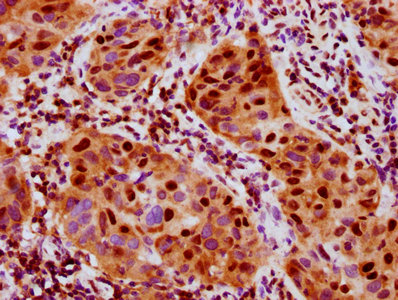To create the phospho-RPS6KA5 (S376) recombinant monoclonal antibody, the process initiates with the isolation of genes responsible for coding this antibody from rabbits that have been previously exposed to a synthesized peptide originating from the human RPS6KA5 protein phosphorylated at S376. These antibody genes are then meticulously integrated into specialized expression vectors. Following this genetic modification, the vectors are thoughtfully introduced into host suspension cells, which are diligently cultivated to encourage the production and secretion of antibodies. After this cultivation phase, the phospho-RPS6KA5 (S376) recombinant monoclonal antibody undergoes a thorough purification process using affinity chromatography techniques, effectively separating the antibody from the surrounding cell culture supernatant. Finally, the functionality of the antibody is rigorously assessed through ELISA and IHC, conclusively confirming its capability to interact effectively with the human RPS6KA5 protein phosphorylated at S376.
Phosphorylation of RPS6KA5 at S376 is a crucial regulatory mechanism that allows cells to respond to extracellular signals and stressors, modulating gene expression and influencing various cellular processes. Dysregulation of this phosphorylation event can have significant implications in diseases and conditions related to cell growth, stress responses, and gene expression.






